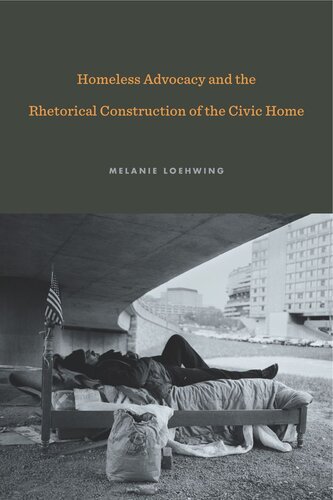

Most ebook files are in PDF format, so you can easily read them using various software such as Foxit Reader or directly on the Google Chrome browser.
Some ebook files are released by publishers in other formats such as .awz, .mobi, .epub, .fb2, etc. You may need to install specific software to read these formats on mobile/PC, such as Calibre.
Please read the tutorial at this link: https://ebookbell.com/faq
We offer FREE conversion to the popular formats you request; however, this may take some time. Therefore, right after payment, please email us, and we will try to provide the service as quickly as possible.
For some exceptional file formats or broken links (if any), please refrain from opening any disputes. Instead, email us first, and we will try to assist within a maximum of 6 hours.
EbookBell Team

5.0
78 reviewsHomeless assistance has frequently adhered to the “three hots and a cot” model, which prioritizes immediate material needs but may fail to address the political and social exclusion of people experiencing homelessness. In this study, Loehwing reconsiders typical characterizations of homelessness, citizenship, and democratic community through unconventional approaches to homeless advocacy and assistance.
While conventional homeless advocacy rhetoric establishes the urgency of homeless suffering, it also implicitly invites housed publics to understand homelessness as a state of abnormality that destines the individuals suffering it to life outside the civic body. In contrast, Loehwing focuses on atypical models of homeless advocacy: the meal-sharing initiatives of Food Not Bombs, the international competition of the Homeless World Cup, and the annual Homeless Persons’ Memorial Day campaign. She argues that these modes of unconventional homeless advocacy provide rhetorical exemplars of a type of inclusive and empowering civic discourse that is missing from conventional homeless advocacy and may be indispensable for overcoming homeless marginalization and exclusion in contemporary democratic culture.
Loehwing’s interrogation of homeless advocacy rhetorics demonstrates how discursive practices shape democratic culture and how they may provide a potential civic remedy to the harms of disenfranchisement, discrimination, and displacement. This book will be welcomed by scholars whose work focuses on the intersections of democratic theory and rhetorical and civic studies, as well as by homelessness advocacy groups.